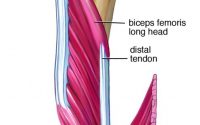Breaking Free from Body-Focused Repetitive Behaviors: The Power of Habit Replacement

Body-focused repetitive behaviors (BFRBs) can be incredibly distressing and challenging to overcome. These habits, such as compulsive hair-pulling or skin-picking, affect about 5% of people worldwide. While traditional approaches like decoupling have shown some success in breaking these habits, they may not be effective for everyone. However, a new study published in JAMA Dermatology introduces a promising new technique called habit replacement. The study was led by Prof. Steffen Moritz, from the clinical neuropsychology working group at University Medical Center Hamburg-Eppendorf in Germany. This innovative approach aims to replace harmful behaviors with gentle and soothing touches, helping individuals find relief and regain control over their lives.
The Concept of Habit Replacement
Habit replacement involves unlearning a repetitive behavior by substituting it with a similar, non-harmful movement. For instance, instead of succumbing to the urge to bite your nails, habit replacement encourages individuals to redirect their hand towards their face but touch an earlobe or another body part gently. By replacing the negative action with a harmless and soothing alternative, the brain can begin to rewire itself, weakening the compulsion to engage in the destructive behavior.
The Unique Aspect of Habit Replacement
Habit replacement lies attempts to replace the pleasurable sensation derived from harmful habits with something equally enjoyable but non-detrimental. In this case, the technique encourages the use of gentle touch as a substitute, such as gently rubbing the fingertips, palm or back of the arm at least twice a day.
Avoiding Rough and Harmful Touch
The habit replacement training manual provides essential guidance to participants to avoid engaging in rough or harmful body touching. Activities like scrubbing the skin aggressively during a shower or brushing teeth too forcefully are discouraged. Instead, the focus is on promoting loving and tender touches that can soothe the individual without causing harm.
Promoting Self-Care and Positive Experiences
The habit replacement approach goes beyond merely replacing harmful behaviors. Just as we pay attention to what we eat to maintain a balanced diet, it’s equally essential to ensure we’re getting enough tactile sensation in our touch-diet. Activities like getting a massage, taking a warm bath, or applying lotion with care fosters positive associations and helps individuals form healthier habits.
The Study and Its Findings
The study involved 268 individuals who exhibited trichotillomania or nail-biting and cheek-biting behaviors. Participants were randomly assigned to either the habit replacement training group or the wait-list control group. Over the course of six weeks, the treatment group received instructions on adopting the habit replacement technique, while the control group was placed on a waitlist.
The results were promising, with approximately 53% of individuals in the habit replacement group reporting some improvement in their BFRBs, compared to about 20% in the control group. While the study is considered “proof-of-concept” research and requires further validation, experts find the outcomes encouraging.
Conclusion
Breaking free from body-focused repetitive behaviors can be an arduous journey, but the introduction of habit replacement offers hope and relief to those struggling with these habits. By gently replacing harmful actions with positive and soothing touches, individuals can begin to rewire their brain and find relief from BFRBs. The habit replacement technique not only addresses the behaviors themselves but also encourages self-care and positive experiences, creating a holistic approach towards healing.
Although more research is needed to fully understand the effectiveness of habit replacement, its potential as an alternative and complementary strategy is couraging.
In our technologically-driven world, it’s easy to overlook the importance of tactile sensation in our daily lives. Just as we prioritize a balanced diet for physical health, nourishing our touch-diet is vital for emotional and mental well-being. Embrace the power of touch by incorporating meaningful and soothing tactile experiences into your life.
